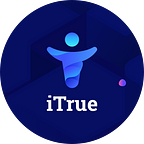Huge chunks of data collected by tech companies reveal our habits, thoughts and lifestyles. Because of the ability to analyze this information, smart algorithms will learn to accurately predict our future and make decisions for us. Machines will develop faster and faster, whereas people will move forward with baby steps. Of course we can convince ourselves that we’ll always excel robots in terms of ethics and feelings…
But Harari is not sure of that, too. ‘Unmanned’ cars can be equipped with adjustable parameters of ethics, which will be a result of works of great philosophers, meanwhile biometric sensors will be able to better interpret our feelings than we ourselves.
Personal information makes an irrevocable part of a person: name, age, telephone number, e-mail — of all this represent who we are. Some 15 years ago, when we met with people we used to write their phone numbers in a notebook. In the current era of e-commerce, a database of telephone numbers is an easy prey for marketing agencies. For a few hundreds of dollars, your number will become public, known to persons who you do not know.
That’s how personal freedom disappears.
When you open your email, you never actually know how much time you will waste on trashing marketing e-mails. In the past, if you saw a notice that a new letter had appeared, you knew exactly that it was something important: only a limited amount of people knew your e-mail address. Nowadays it is difficult to find an important letter in the line of promo offers.
Free Wi-Fi in subways is a treat for users, yet it is also a valuable means for information collection, allowing companies to identify people’s interests and use this information to increase sales.
It seems that we are constantly monitored and ‘guided’. We are advised what to buy and where to go. We are like puppets in hands of marketers and the more personal information flows away, the more power the companies get over our minds.
By accessing an online store, we often buy not what we really want, rather something that is offered to us by the neural network. It turns out that the stores know more about us than we know about ourselves.
What if computers will learn to understand us even better? How will that affect our choice of a profession/person to love? Will we be able to independently vote at the elections? Harari portrays the world where Anna Karenina consults a Facebook algorithm, before getting into a relationship with Alexei Vronsky. In this same world the AI systems set the parameters for our political beliefs. The democracy will become more of an “emotional puppet show”.
Social networks tell us who we can be acquainted with. The most sensational example was the case with Facebook, when patients of a psychiatrist, who had logged in the social channel from the clinic, received a proposal to add each other as friends.
Information is one of the most important components of a personality. How much does it cost? You will be surprised, but sometimes companies do not have to pay a lot. Take the case of loyalty cards of shopping centers: just a few dollars, and you will get a complete package of information, which will be constantly updated. Just a few bucks to be trapped!
It is impossible to disagree with Harari, who calls modern digital consumers naive. Protection of personal information is of vital importance if you want to have some privacy. Secured information won’t be used by companies for their own and exclusive benefit, allowing people to keep their right of freedom of choice and confidentiality.
Stay tuned to iTrue news!
#iTrueWillSave
